Saturday 3rd to Thursday 8th August
It was a 220 mile sail from Banda to the next rally venue, Tifu, a village on the south coast of Buru Island. We set off in the early morning with Hakuna Matata and had a tremendous sail, on a reach with both mainsail and genoa filling like massive wings, at speeds of 7+ knots. We were worried we’d arrive too early and in the dark but as we approached the southernmost point of Buru Island the wind dropped (the phone also pinged back into action allowing WhatApp chats with family back home). Messages had been conveyed back from boats ahead of us about floating fishing platforms and nets, with their waypoints to avoid, so we kept a close lookout in the dark. As we sailed along the south coast, very slowly by now and with Hakuna Matata close behind, we were surrounded by the lights of fishing boats and could only hope there weren’t nets strung between them. Eventually, as the wind died, we gave up trying to sail as our speed dropped to a couple of knots, so started the engine, hoping there wouldn’t be nets around to get tangled in the propellor in the dark.
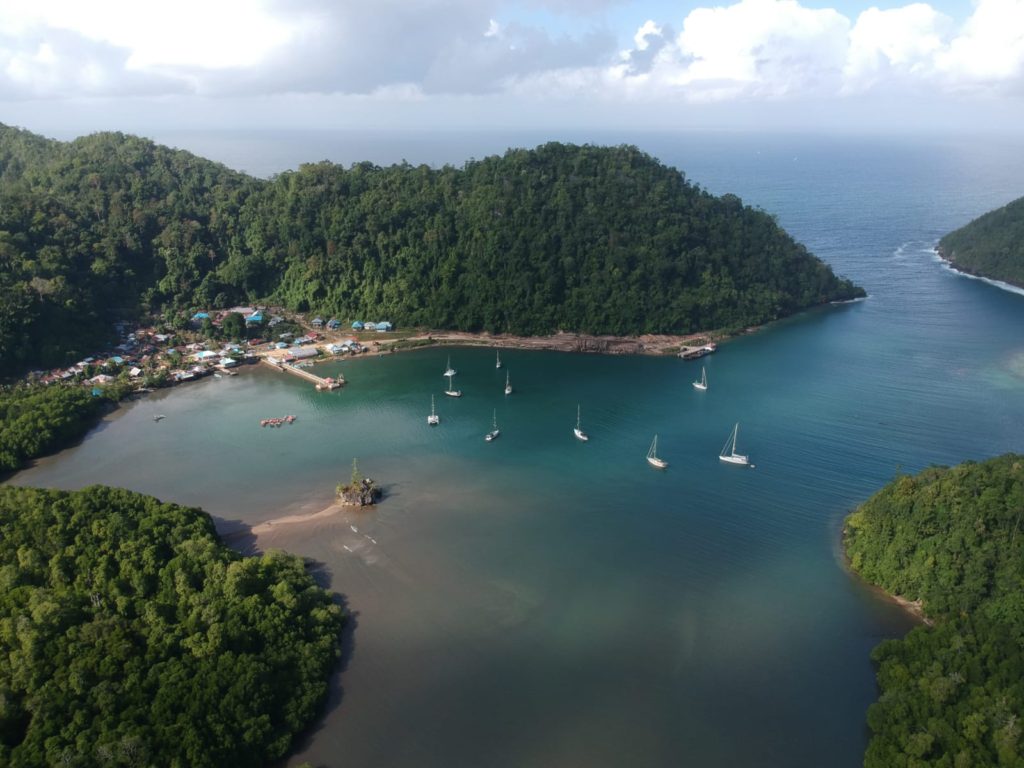
We arrived in Tifu at 8am, motored through the narrow entrance and found space in the protected bay to anchor amongst the 25 rally boats already there, just in time to go ashore for the opening ceremony.
We joined the other rally participants on plastic chairs in the shade of a large gazebo with villagers crowding around to listen to a long series of speeches in Indonesian, the expression ‘Wonderful sail to Indonesia’ thrown in regularly to keep us alert. After that dancing displays by children and women then free for all dancing doing the twist which we were encouraged to join in with (easy getting down, a little trickier getting up nowadays) and a buffet lunch.
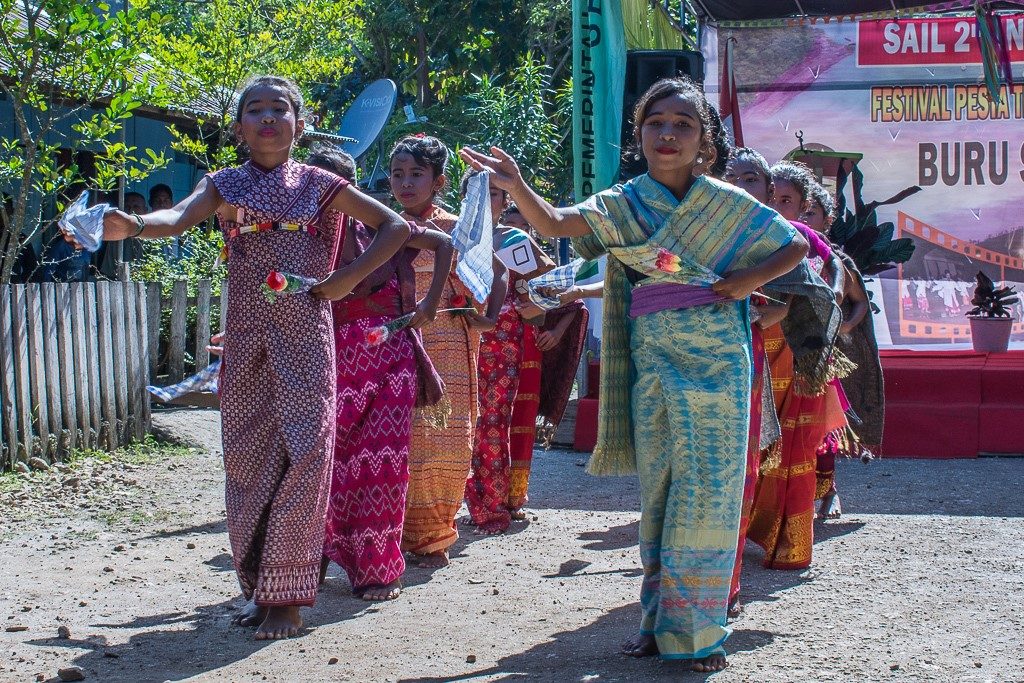
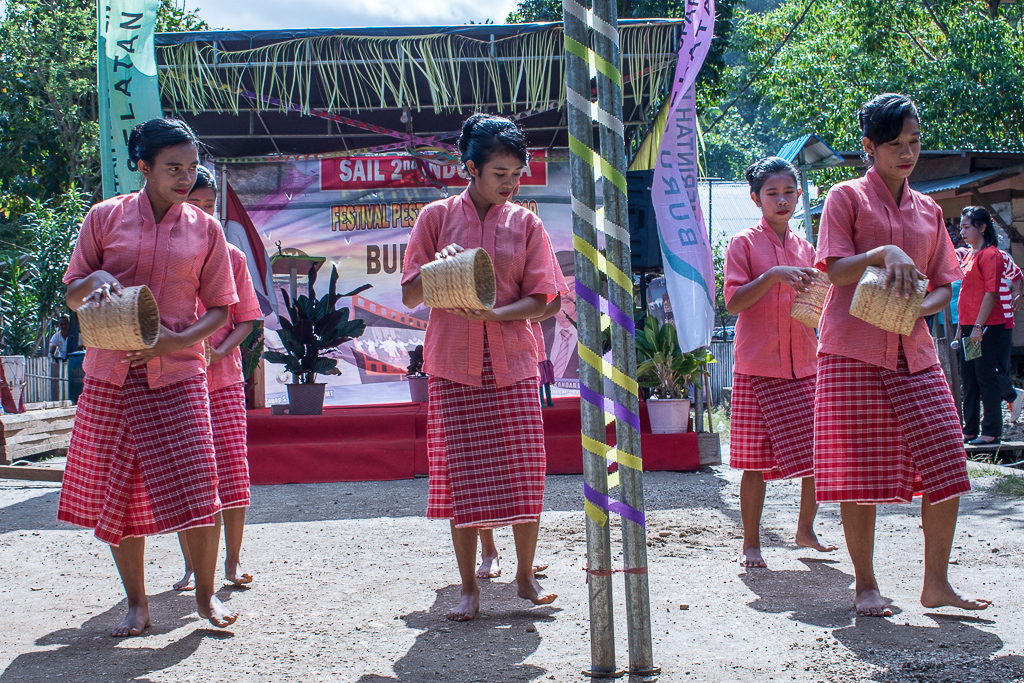
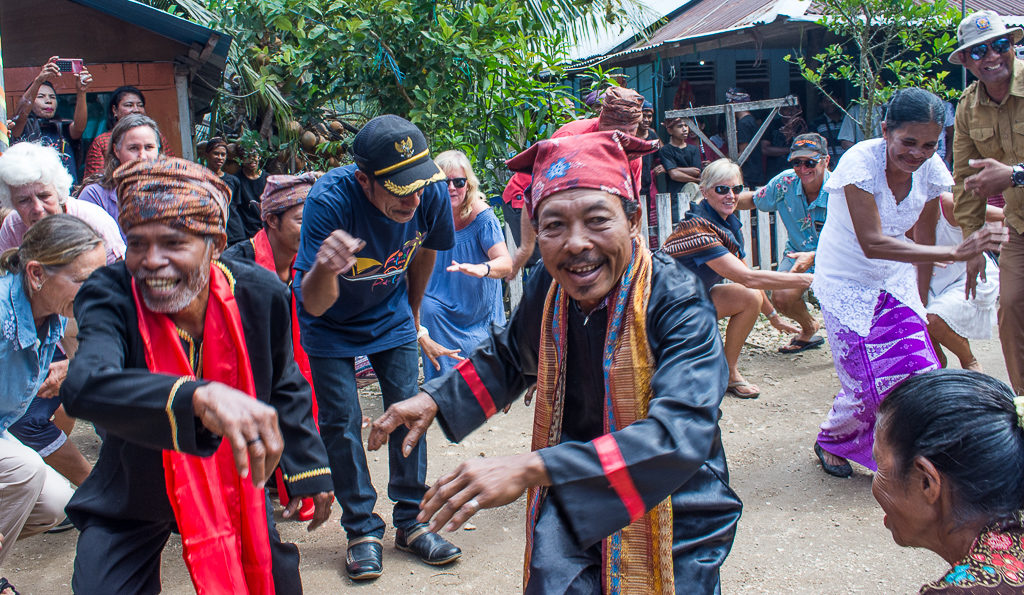
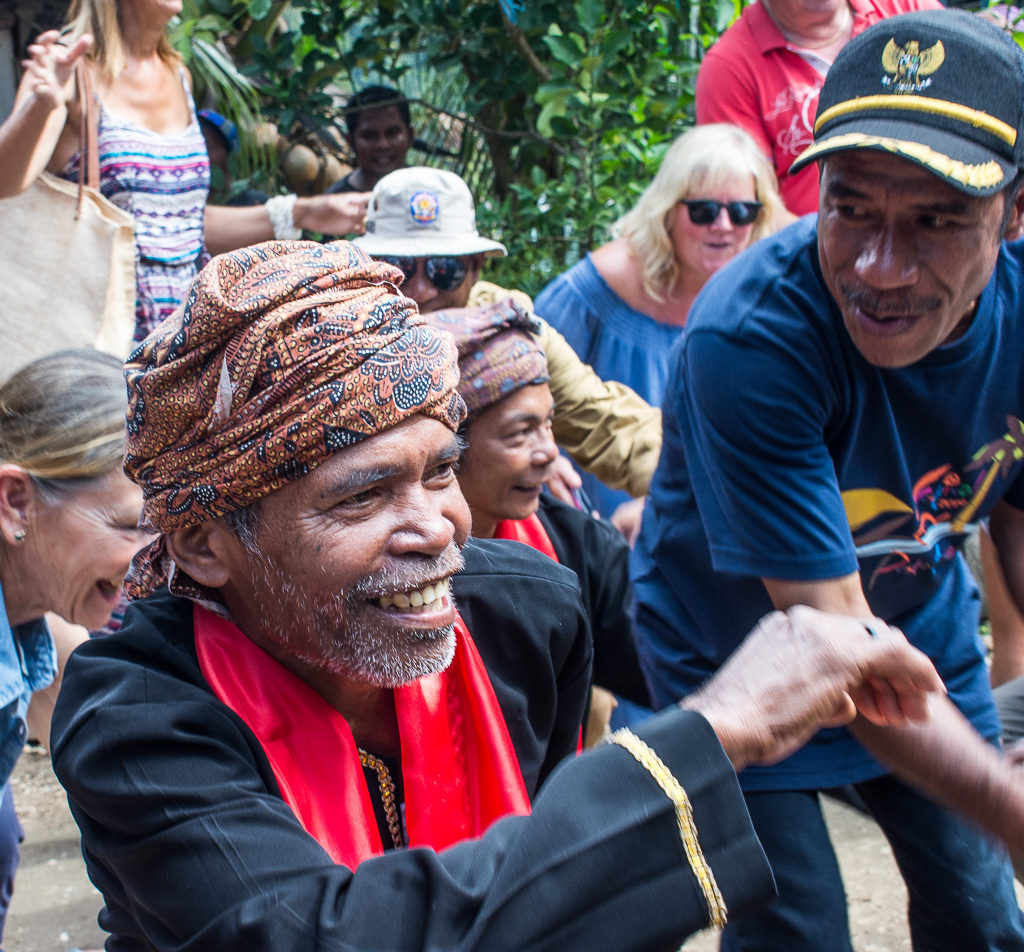
After lunch we wandered around the village, stopping to watch women washing clothes using spring water gushing out of a pipe. Tifu felt poor and the one road leading down to the village was unmade and deeply rutted. The local school is over a mile up this road which must be almost impassable in bad weather.
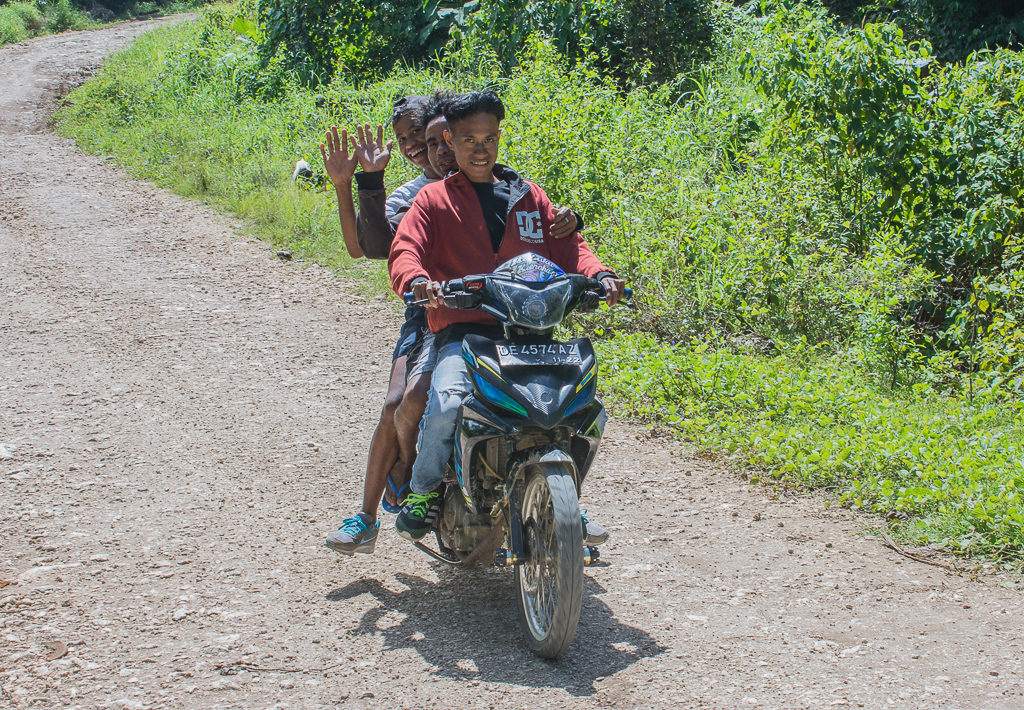
There was little on sale in the small shops and no phone signal so no WiFi. But the people were friendly, children giggling and wanting photos, and we were invited to sit in the porch of the drum maker as he and friends beat out a rhythm on the bongos and a woman danced, her hands weaving back and forth like a snake. This soon turned into more twisting which I was persuaded to join in with.
We were sorry to miss the various events organised later that day which included swimming and canoe races, cooking and a tug of war between locals and cruisers, but we collapsed with exhaustion after our two nights at sea and slept.
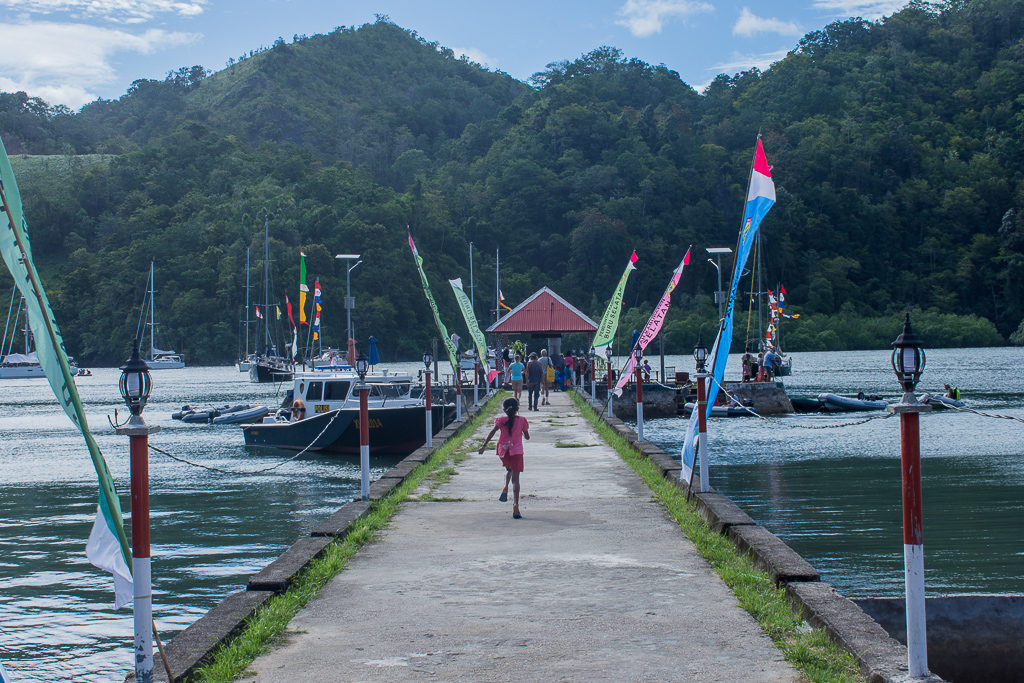
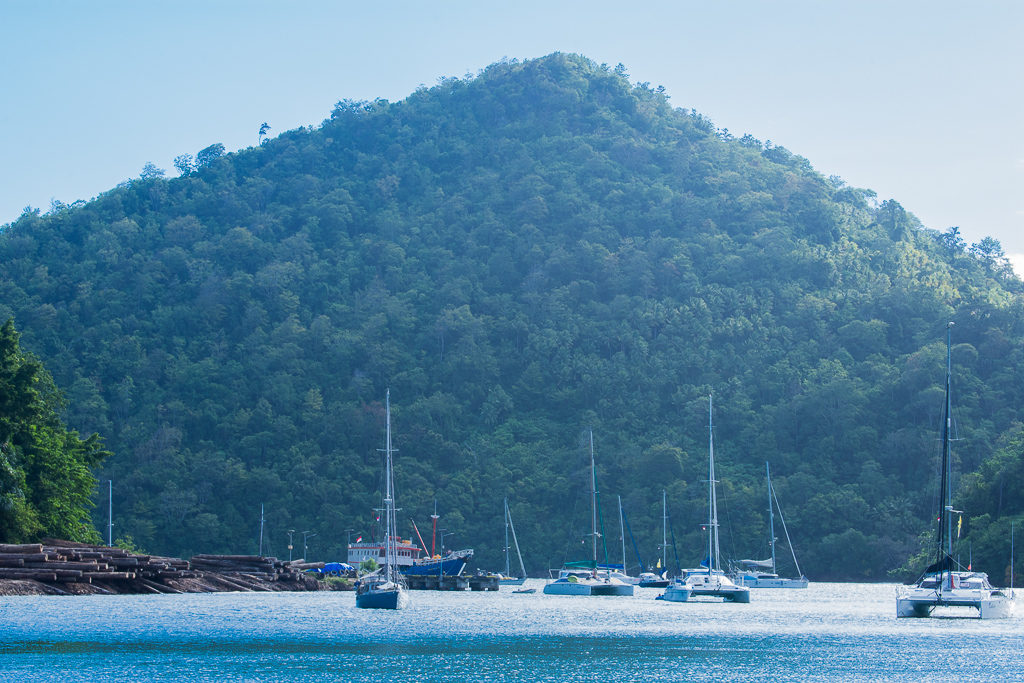
The following day was the ‘city tour’ visiting three remote villages, which started at 5am to ‘enjoy the sunrise and the beauty of the country on the cloud’ at the first village, high in the hills. ‘Enjoy’ and ‘5am’ sounded an oxymoron to me and to several of the other cruisers, so an additional 8am start was proposed. The morning of the tour was overcast and we paid our 300,000 rupiah each to join the tour (about £18 each) which we were told would be a contribution to help the three villages build a church. To our dismay the ‘buses’ turned out to be 4WD trucks and a few lucky ones, me included, managed to get a seat inside with the remainder piling into the back of the truck, open to the elements. After an hour or more of bouncing along the rutted track, steadily climbing higher through bare, open hillsides with scrubland and few trees (we wondered if these were once densely forested), it gradually got colder and started to drizzle. We eventually passed four bedraggled cruisers, part of the 5am group, walking back along the road as they’d decided it was too dangerous to drive down. Soon after we came to where a group of trucks had stopped at the bottom of a steep and deeply rutted track, with a party of other cruisers slipping their way down, some in thongs (as the Aussies call flip-flops), looking wet, cold and very muddy. They’d been at Fakal village at the top of the track which they described as poor with houses built up the hillside. Although the villagers had been very welcoming there we decided unanimously to give this stop a miss. We found out that a truck had overturned along these roads within the last few weeks, killing several people including the person whose job it was to assess whether the roads were safe for traffic. Some very cold, shivering children piled inside the front of the jeep with us to get warm plus one of the cruisers, dressed only in a flimsy summer dress.
It was another hour’s bouncy drive to the next village, Mngeswaen, which was dominated by a Dutch church built in 1936. The village appeared extremely poor, the houses with corrugated iron roofs, some of the people with teeth stained orange from chewing on betel nuts. Again we received a warm welcome and villagers thronged around, excited to meet us and wanting photographs and selfies taken. There was a display of dancing by local women and a simple lunch of rice, vegetables, fish and fatty lumps of pork eaten under a canopy whilst the locals crowded outside to observe us.
The main attraction of the third village, Waekatin, was its ‘Opofot fishing’ and we were intrigued when small boys squatted down by the river bank holding twigs with bait in the form of tiny worms which they dangled into the water whilst singing a melodic song to call the fish. If one was caught there was great excitement and cries of joy. The ‘fish’ turned out to be 3cm long creatures which were collected in a plastic water bottle…. we never did find out what happened to them.
The following evening was the Gala Dinner and it was pouring with rain. Going ashore in waterproofs we sheltered under the gazebo to enjoy an hour of speeches and the presentation of various large cups to locals, followed by a disco dance routine by eight pre-pubescent girls in tiny shorts and T-shirts with much hip grinding and bum wiggling (although the majority religion in Indonesia is Muslim, Tifu is a Christian village as were the villages we visited up in the hills). After a buffet meal we joined in dancing with the locals until way past the normal cruiser’s bedtime of 9pm.
Come the morning, by the time we got up there were only 9 boats left in the anchorage. It was an overcast, still morning and would have been peaceful but for the sound of a chainsaw cutting up massive tree trunks by the small jetty. We went ashore to the, by now, quiet village to buy eggs and potatoes, the only fresh food we could find in the few small shops there.
Back on Vega two girls paddled over to say hello, one using a flip flop to paddle in between baling out their canoe. They were delighted when I gave them jelly babies and sparkly hair slides….. ‘thank you so much’.
We left Tifu soon after lunch for the sail south-west to Wakatobi, 200 miles and another two nights at sea.

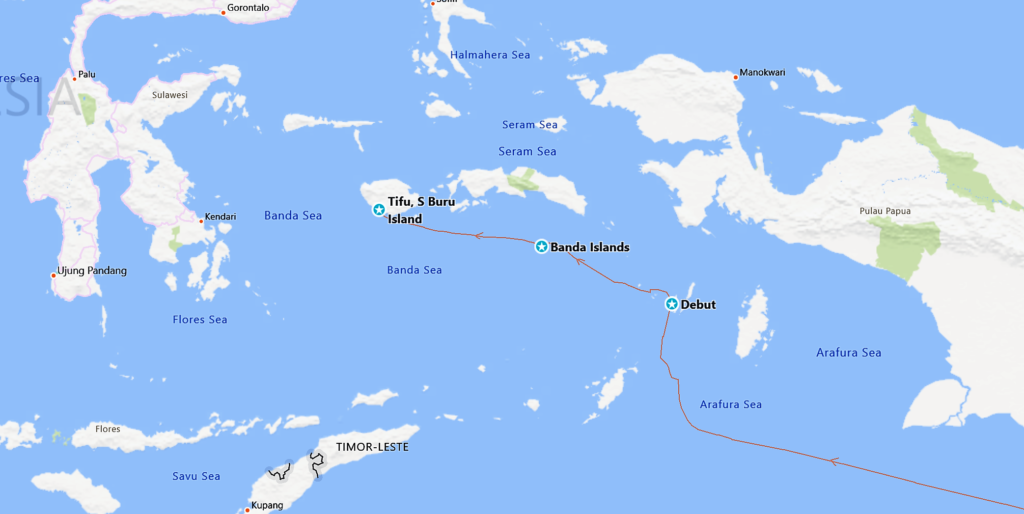
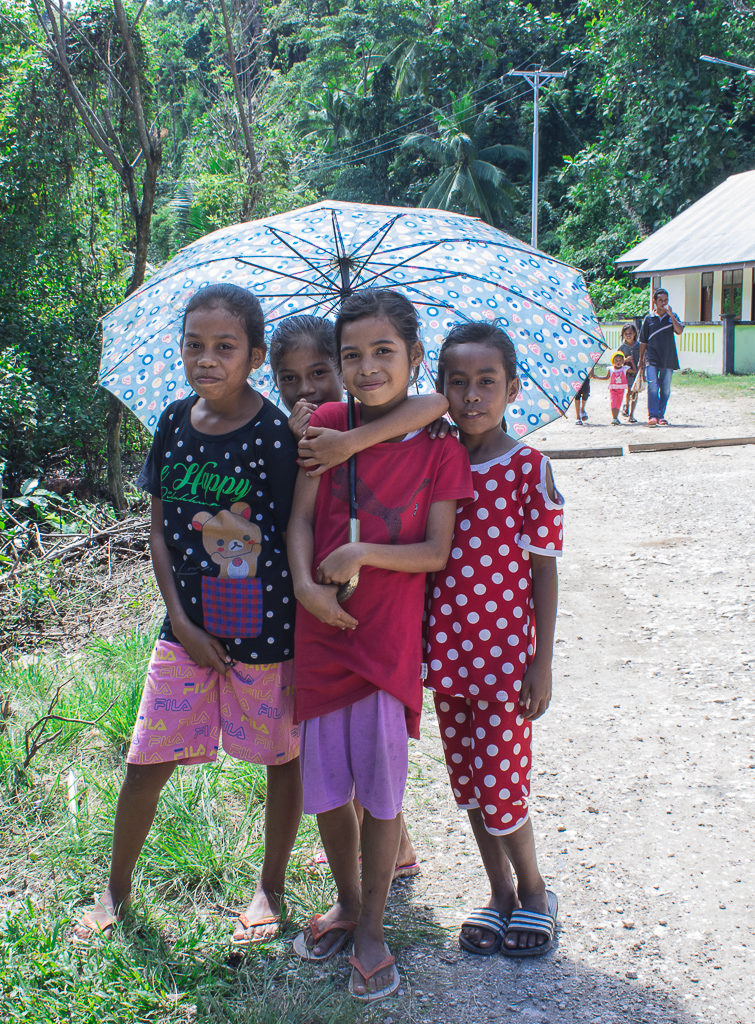
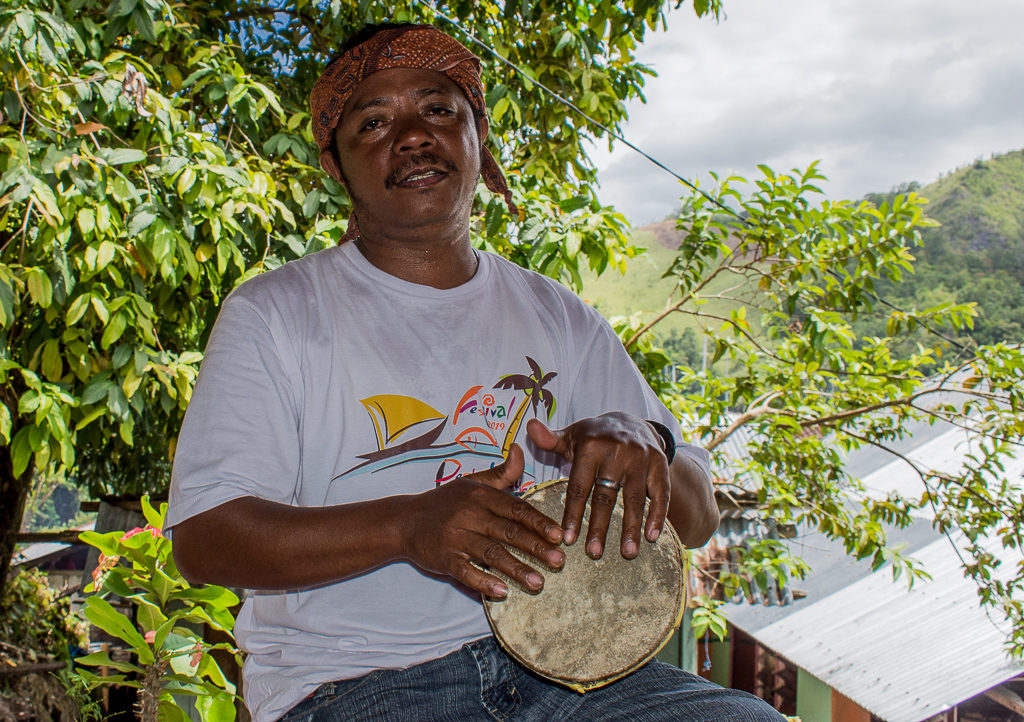
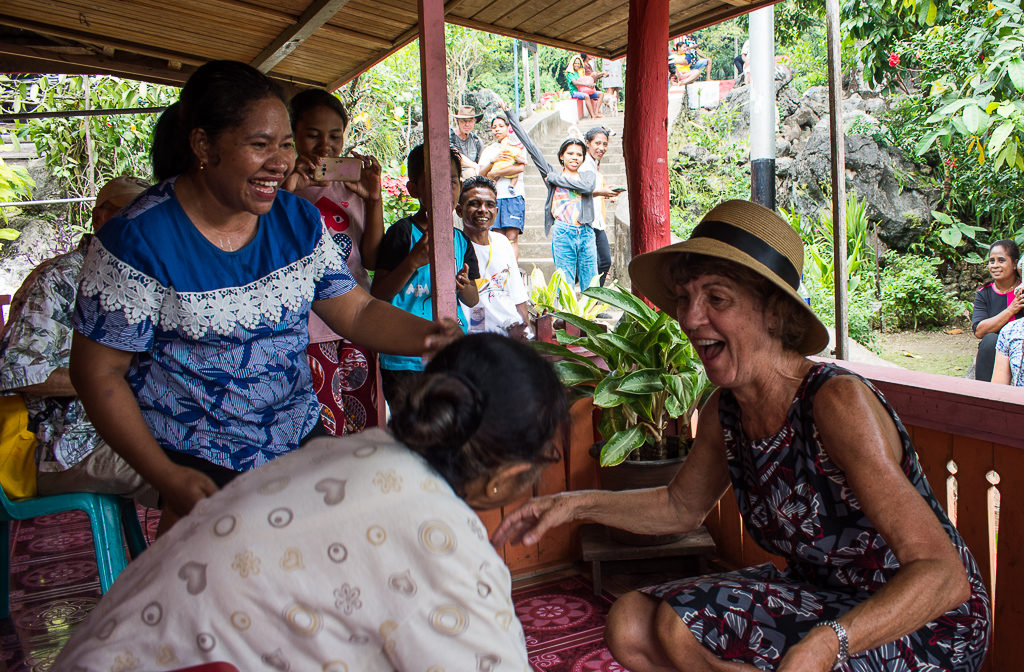
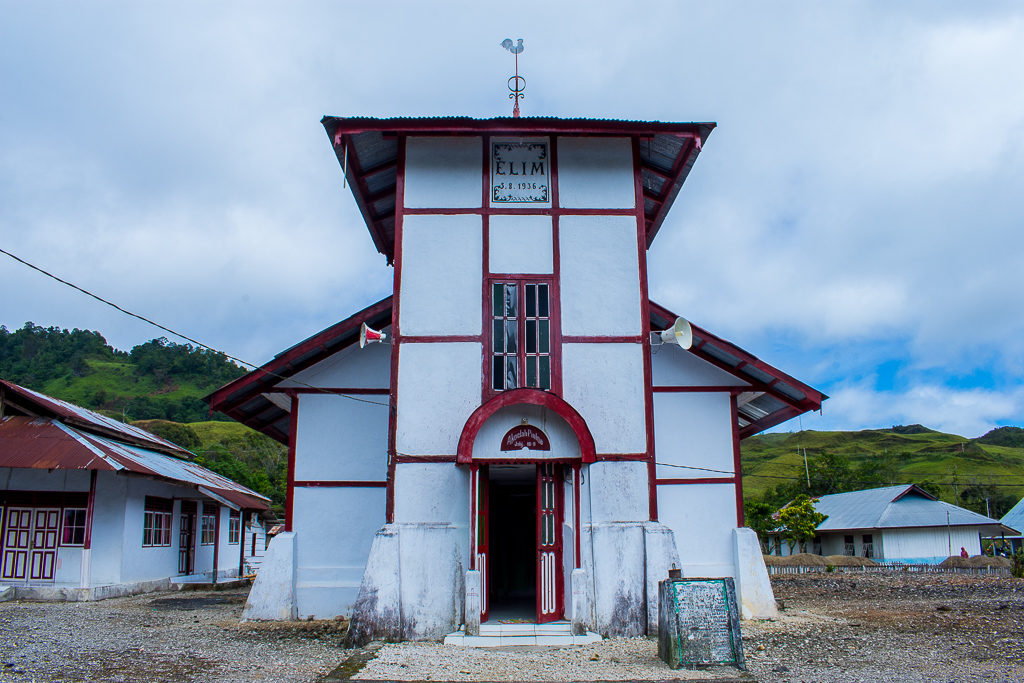
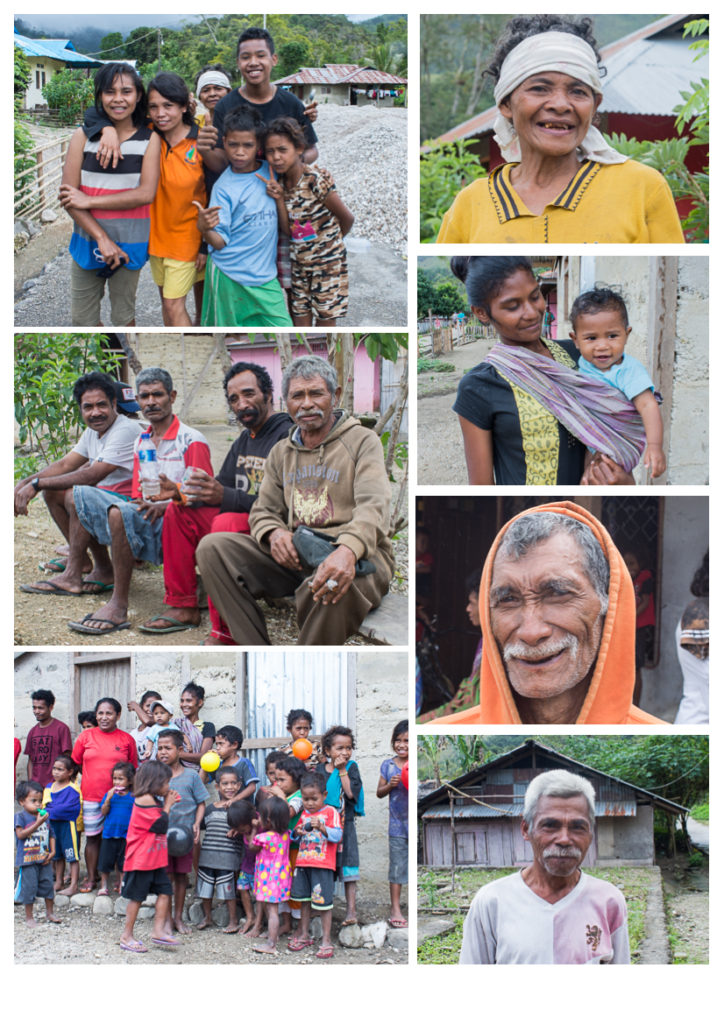
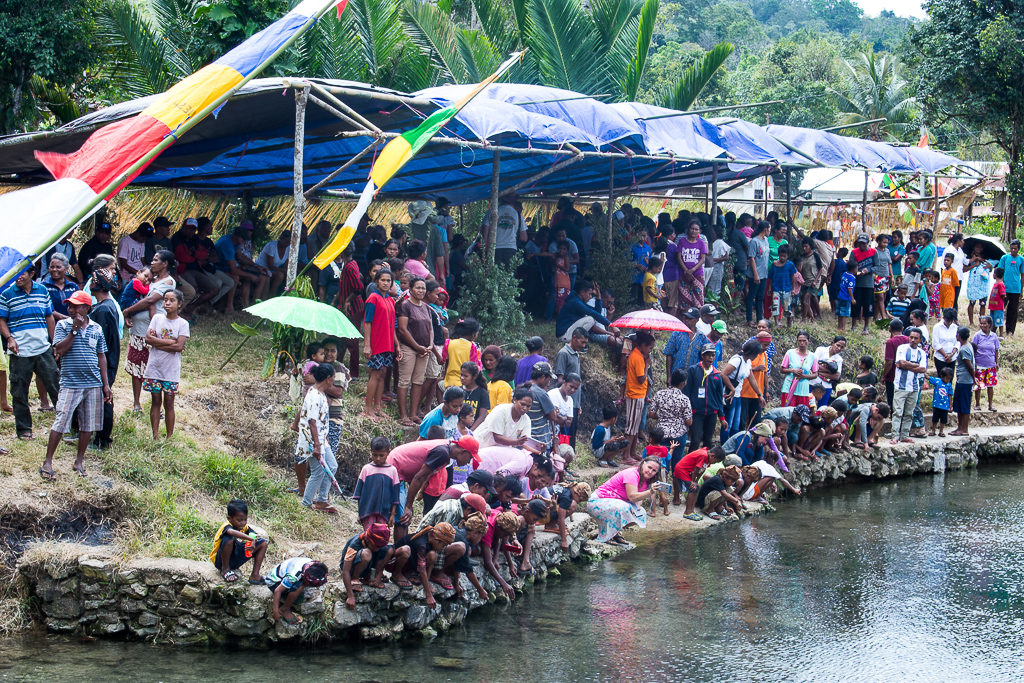
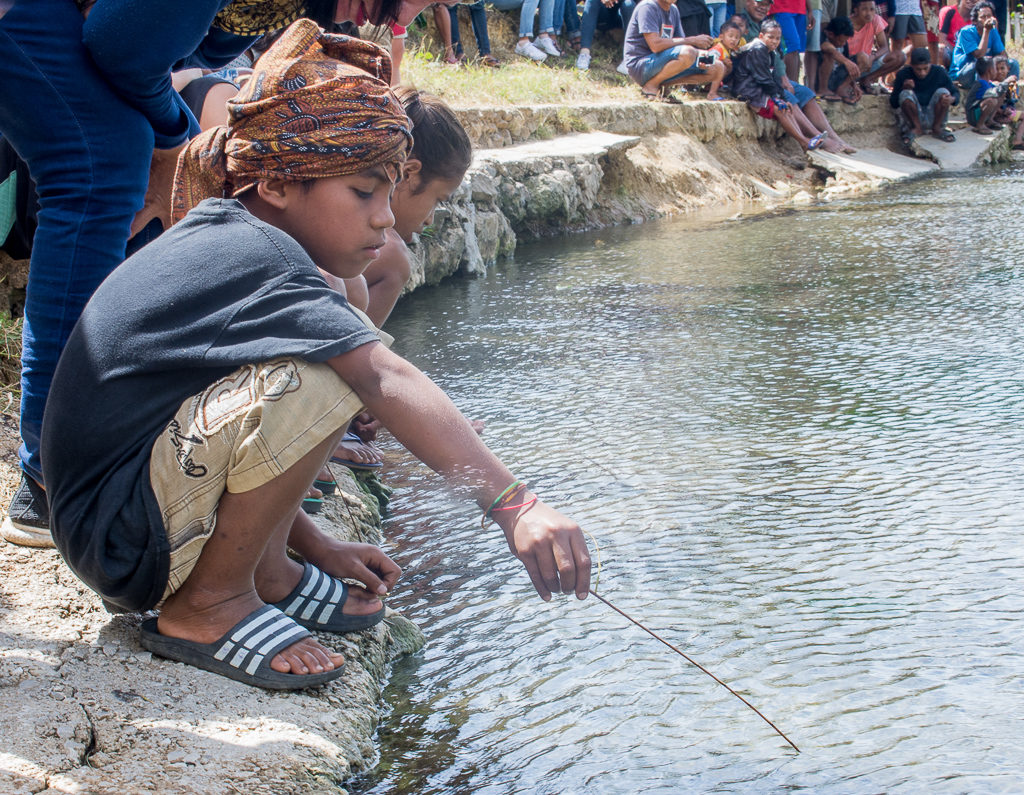
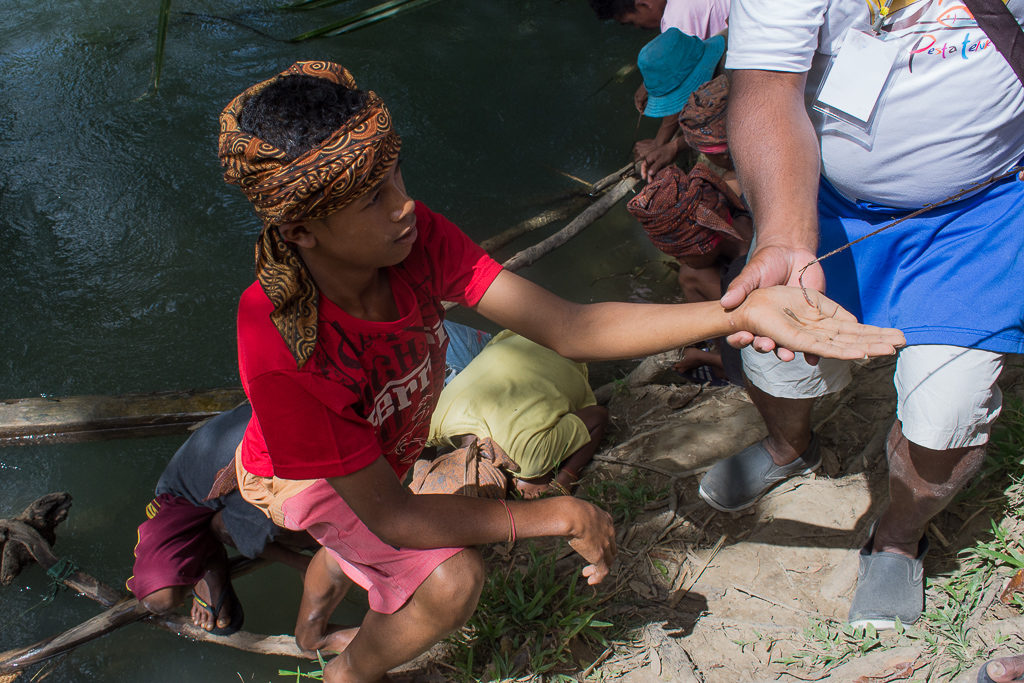
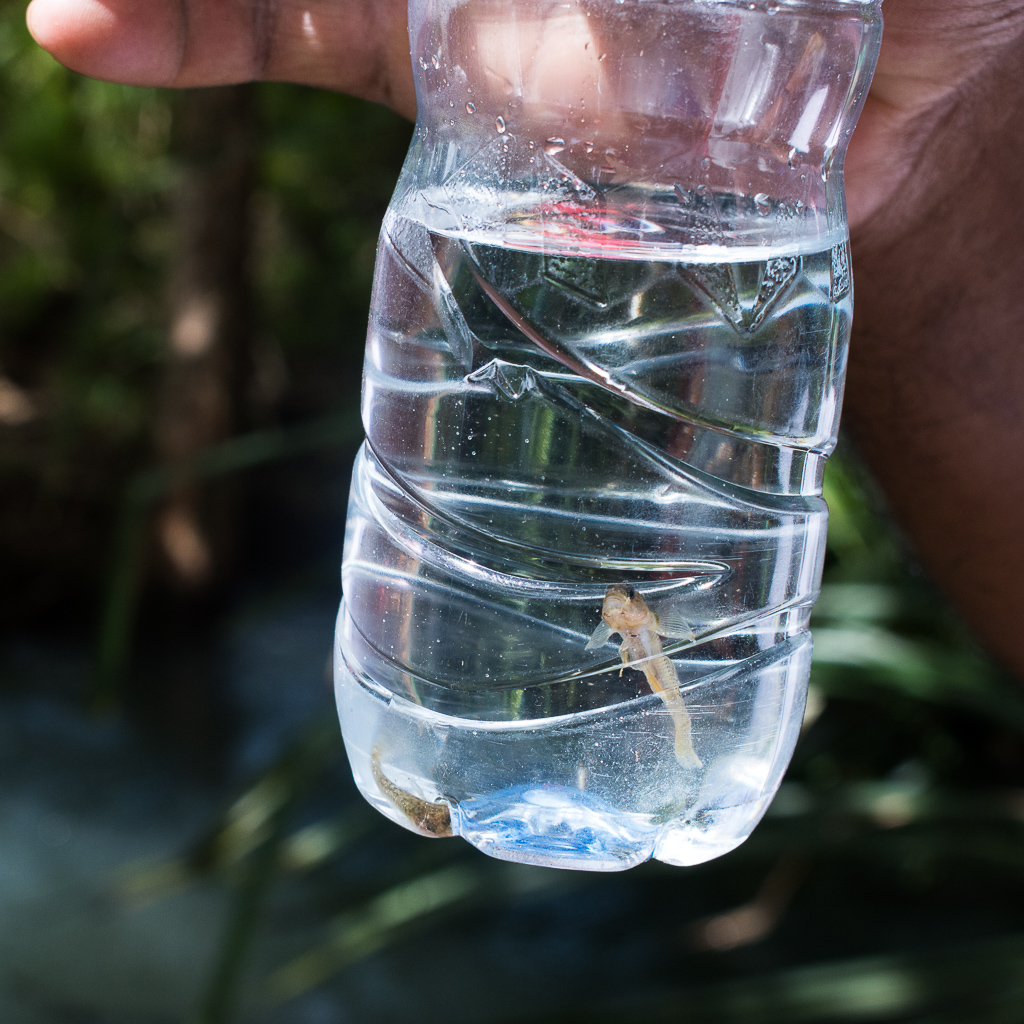
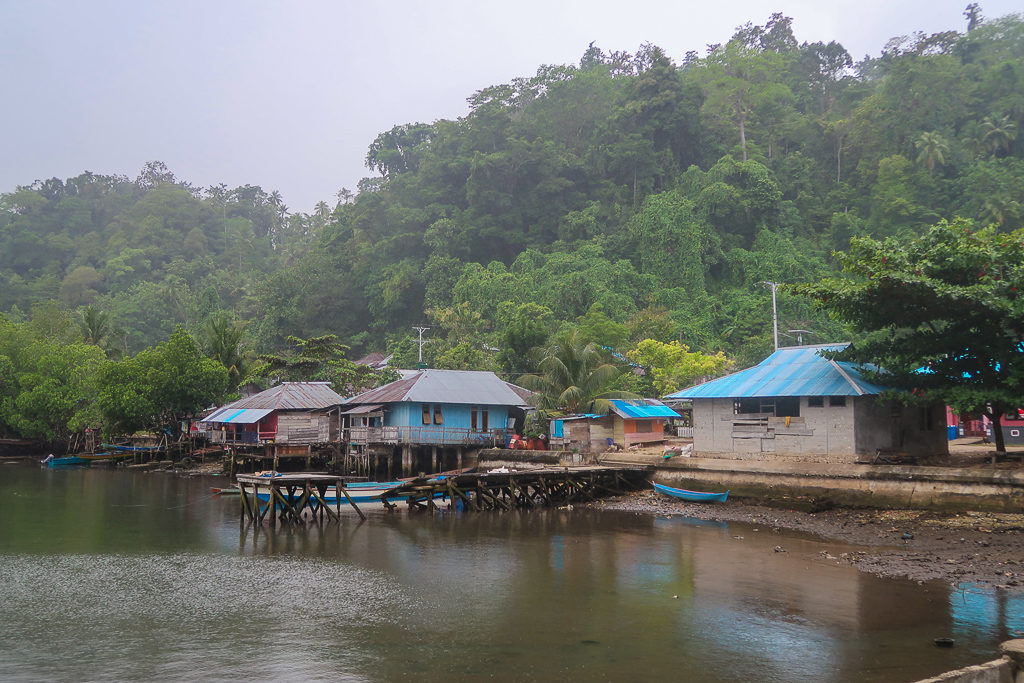
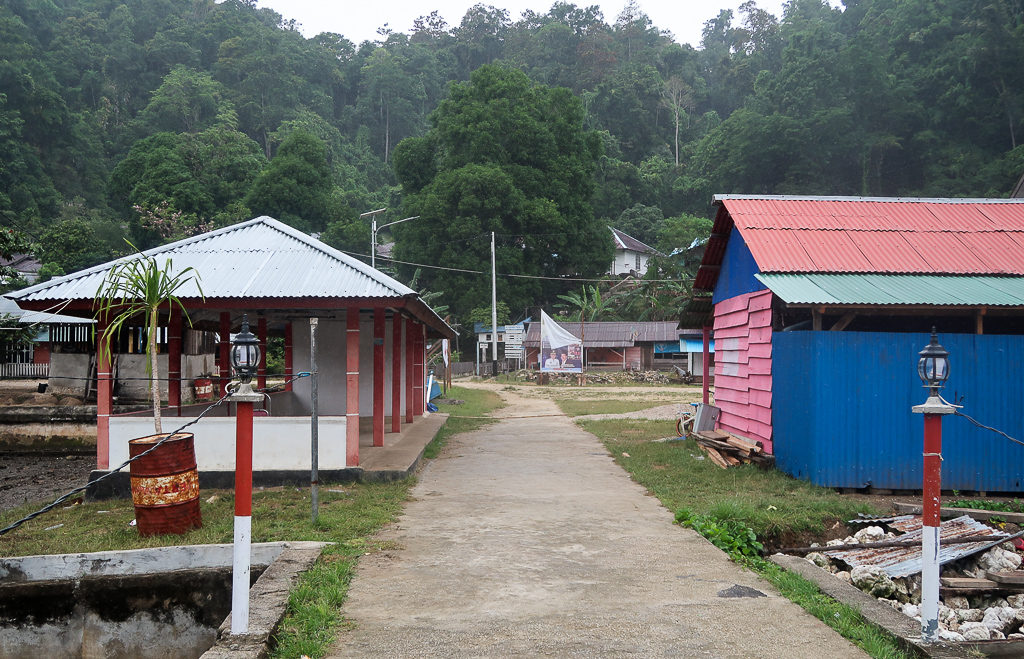
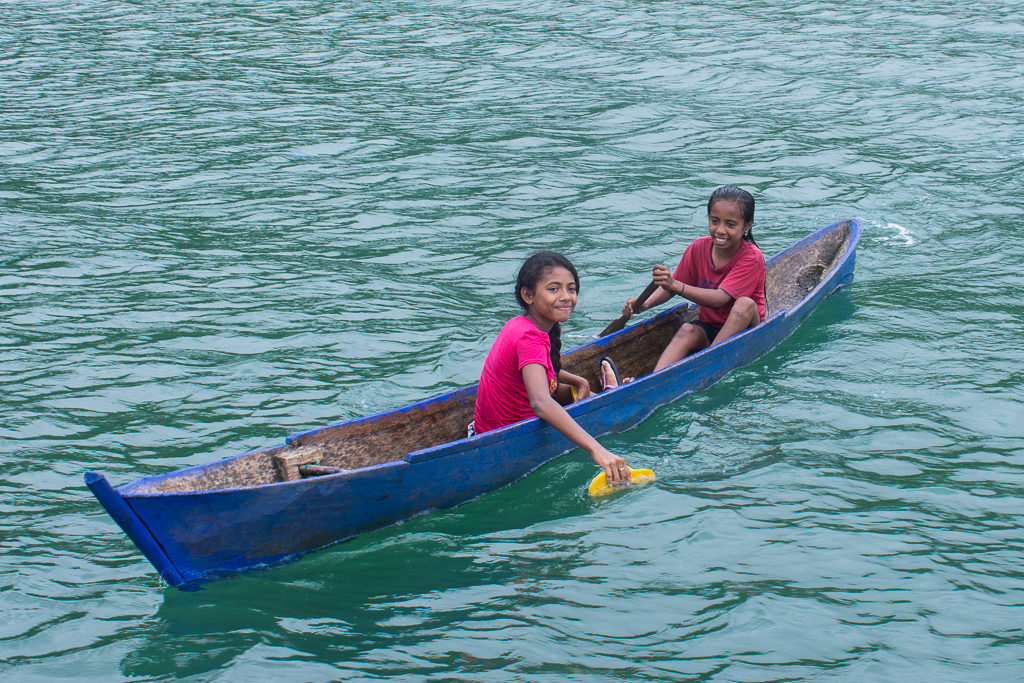
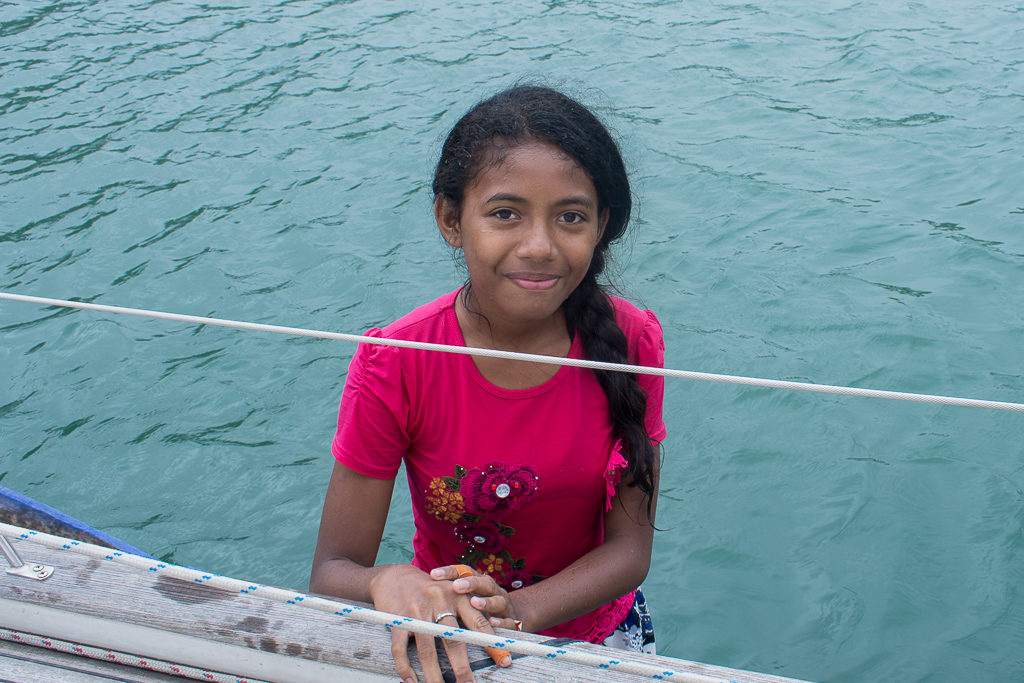
3 Comments
Georgina Evans
September 2, 2019 - 1:40 pmAnnie, Chris and I have just arrived in Morlaix, Brittany and admired a collection of yachts, as we sat picnicking in the sun. This prompted thoughts of you and Hugh and so it was great to catch your news. Those welcome parties and speeches sound slightly exhausting, especially after your long journeys at sea! George x
Paul Bayley
September 11, 2019 - 8:13 pmNot only is it sometimes dangerous at sea but you now seem to being carrying that on when on dry land. It was be great to see so many different ways of life, look forward to the next read.
Paul
annie
September 16, 2019 - 6:27 amHaha! Thanks Paul for your comments and for following our trip. Annie